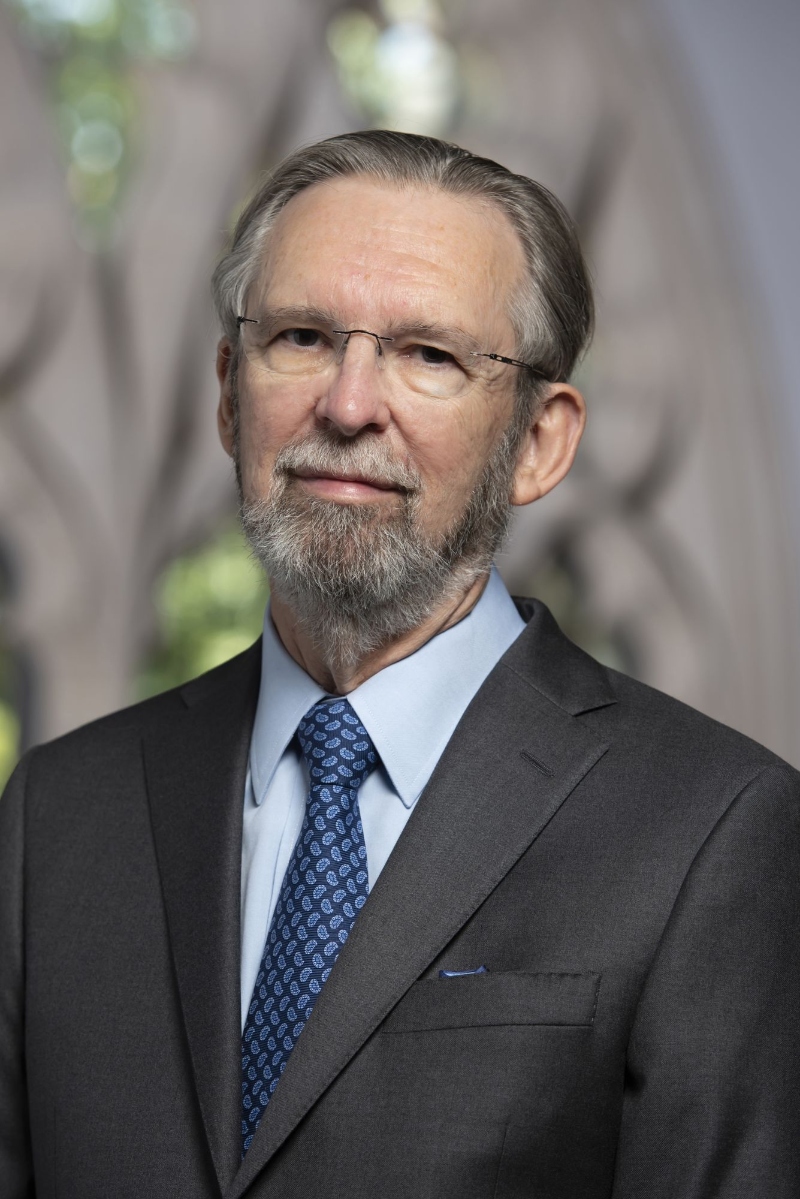The long-lasting echo of Richard Hays (1948-2025)
His name might be unfamiliar to you, but Hays wrote three books that set new directions for New Testament studies in the late 20th century and into the 21st century, writes Andy Goodliff
 I had one opportunity to hear Richard Hays in person speak. He visited Oxford in 2009 and gave a lecture on Old Testament echoes in the gospel of Mark and also shared in a debate with Nigel Biggar over New Testament attitudes to violence. He was a brilliant New Testament scholar. Hays died at the beginning of this year.
I had one opportunity to hear Richard Hays in person speak. He visited Oxford in 2009 and gave a lecture on Old Testament echoes in the gospel of Mark and also shared in a debate with Nigel Biggar over New Testament attitudes to violence. He was a brilliant New Testament scholar. Hays died at the beginning of this year.
His name might be unfamiliar to you, but Hays wrote three books that set new directions for New Testament studies in the late 20th century and into the 21st century. As others have remarked (in Baptist News and Religion News), most scholars might hope to do this once, Hays did it three times.
The first book published in 1983 was his doctoral dissertation on Galatians. It was called The Faith of Jesus Christ and reinvigorated the debate over how a particular phrase in Romans and Galatians should be translated — faith in Jesus Christ or the faith of Jesus Christ.
Hays argued for the later: we are justified not by our own faith, but Christ’s faith, displayed in his life and the cross. It was reprinted in 2002 (something that almost never happens with a dissertation).
The influence of Hays (and others) can be seen that in the new 2011 NIV translation, that while it still has ‘faith in’, it has footnote showing that it could be ‘faith of’ (compare that to the 1978 NIV).
His second book, published in 1989, was called Echoes of Scriptures in the Letters of Paul. Here Hays gave careful analysis of how Paul often gives an echo to a verse or a passage in the Old Testament, even when he doesn’t explicitly say so.
Hays shows how versed Paul (and, in the 2016 sequel, Echoes of Scripture in the Gospels, the gospel authors) were in the Old Testament and how much they saw the story of Jesus and the church as in living dialogue with Israel’s story. If we want to read the New Testament well, we need to know the Old Testament well.
His third book, published in 1996, was called The Moral Vision of the New Testament. Hays explores how do we read the New Testament ethically?
Rejecting proof texts, Hays carefully explores the whole of the New Testament and discerns three important lens — community, cross, new creation. He finds, interestingly, love and liberation as insufficient, although they remain the lens most Christians grab to.
If we are to follow Jesus, the New Testament writings, we must do that in the context of a community, namely the church, and a community that is cross and resurrection shaped.
The second half of the book then carefully applies this moral vision to particular ethical issues of violence, divorce, homosexuality, anti-Judaism, and abortion.
Each of these books provide a gift to those of us who are called to read and preach the Bible. Each one is a welcome contribution to a pastor’s bookshelf.
In addition, Hays also wrote two commentaries — one on Galatians and one of 1 Corinthians — and published two collections of essays — The Conversion of the Imagination and Reading with the Grain of Scripture — and edited two books on how to read the Bible (The Art of Reading Scripture) and the identity of Jesus (Seeking the Identity of Jesus). There are other books too, each one demonstrating his Christian faith and his commitment to faithful interpretation of the Bible.
One other book must be mentioned, which appeared in the summer of 2024, written with his son Christopher, The Wideness of God’s Mercy. In this book (which I’ve not yet read), Hays revised his views expressed in The Moral Vision on same-sex relationships, arguing more positively for their affirmation and inclusion. It is too early to know what impact this book will have, and on Hays’ legacy, but it was something he felt important to write, in the knowledge that he did not have long to live. (He was diagnosed with cancer in 2015 and this reoccurred in 2024.)
To read Hays is to find scripture coming alive, and from that the gospel coming alive, in new ways, helping the church to know and follow its Lord.
His impact on New Testament studies will be long-lasting, not just in the academy, but also in the church.
May he rest in peace and rise in glory.
Image | Duke Divinity School
Andy Goodliff is the minister of Belle Vue Baptist Church, Southend. He is a lecturer in Baptist History at Regent's Park College, Oxford
Do you have a view? Share your thoughts via our letters' page.
Baptist Times, 08/01/2025